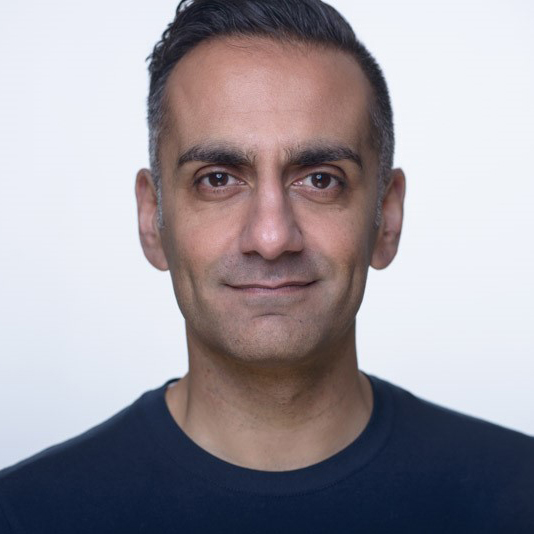
Dr. Pritpal Tamber, MD
- Researcher in community power and health
- Founder of the Creating Health Collaborative
- Former Physician Editor of TEDMED
In Person-Fee 🛈
$15,000 - $20,000
Virtual Fee:
$10,000 - $15,000
Travels From
District of Columbia
Pritpal S Tamber: How does innovation get traction in clinical practice?
Why The Future of Health is About Communities Having a True Voice
Pritpal Tamber Speaker Biography
Dr. Pritpal S Tamber explores how communities can lead the pursuit of health equity.
His work began in 2013 when he was the Physician Editor of TEDMED. Through that role, he observed that innovation in health largely failed to appreciate people’s social conditions – commonly referred to as the ‘social determinants of health’. In response, he founded the Creating Health Collaborative, a highly curated meeting of innovators operating from a deep understanding of a community and its context.
The innovators in the Collaborative were clear that communities’ contexts are not accidental – they are created by policies and how those policies are translated by systems into practices. Population-level health improvement, then, is about changing policies, systems and practices.
To date, the health sector has sought to do this through research. Experts take knowledge generated through research and share it with policymakers and system leaders. Important though this is, it has largely failed to result in the radical changes needed to improve social contexts.
Communities are increasingly organizing to improve their contexts. The process involves building their power and using it to change policies, systems and practices – often described as structural change. Given that inequity stems from unjust and unfair structures, communities are effectively using their power to pursue health equity.
Dr. Tamber studies this growing movement and advises organizations in health – whether health care, public health or philanthropy – what it means for them. He looks at both empirical research and on-the-ground practices to make sense of this new frontier in structural change and health improvement – and what it means for the future of health.
At the end of 2022, Dr. Tamber published a Policy Insight article in Health Affairs summarizing almost three years of research. Together with co-authors from the California Endowment, he presented the theoretical, empirical and experiential evidence linking community power to health equity via policy change. It is one of the most comprehensive and robust analyses in the field.
Dr. Tamber began his career in clinical medicine and shifted to medical publishing, health improvement, and then health innovation. In medical publishing, he was the Editorial Director for Medicine for BioMed Central, the company that disrupted academic publishing by pioneering open access. In health improvement, he was the Medical Director of Map of Medicine, a company that produced 'clinical pathways' to improve the flow of patients through health care systems.
The Realities of Responding to the Social Determinants of Health
As the health sector increasingly recognizes that clinical services alone cannot keep people healthy, it has started to embrace the social determinants of health. While attempts to bring the sector closer to other sectors, such as food, housing, and transport, are important, those at the frontline of this cross-sector work are acknowledging that gains are incremental. Through his work with community-oriented practitioners, Dr. Tamber will show how the challenge is a societal one that requires the health sector to re-examine its relationship with communities.
The True Opportunity of Value-Based Healthcare
Proponents of value-based health care describe it as the strategy that will fix the industry. But this self-ascribed validation of the much-needed shift from fee-for-service fails to understand the true opportunity it presents. Dr. Tamber will illustrate how value-based health care offers us the opportunity to ask what care is for, and, based on the answers, reimagine our health systems so that they return to being of service and value to communities. Doing so requires challenging the unvoiced assumptions that define our current approach to care.
It’s Time for Benefits Programs to Evolve
Workplace benefits programs continue to be framed by the idea of ‘health behaviors’ despite the fact that research has made clear that focusing on individuals is insufficient. Indeed, actuarial evidence is clear that targeting individuals largely only ‘works’ in those that would have changed their behavior anyway. As health care costs continue to consume a growing portion of companies’ resources, it’s time the benefits sector evolved beyond individual health behaviors. Dr. Tamber will share what his work has told him about how companies need to think in terms of communities, not just employees.
Population Health versus Health Equity
Most organizations limit their definition of population health to ‘the outcomes experienced by a group of individuals’. By failing to embrace the full definition, which includes ‘the distribution of outcomes within the group’, they render their population health efforts inert before they even start. Truly embracing the full definition of population health forces organizations to confront their responsibilities in achieving health equity. Dr. Tamber shows how community-oriented practitioners are acknowledging their (often inadvertent) role in consolidating inequity and how they’re changing what they do to embrace true population health.
Fostering Agency to Improve Health
It has been understood for some time that risk factors alone – whether personal, social or environmental – cannot fully explain why someone is healthy or sick. The missing link is whether people have a sense of control over their lives, something that requires individuals and communities to have ‘agency’ – the ability to make purposeful choices. Through his work, Dr. Tamber has gleaned 12 practice-based principles for how health care can work with communities in a way that intentionally fosters individual and collective ‘agency’. Those same principles also act as a mirror to health care to ask whether it can more authentically engage communities.
















